Psychiatric illnesses in Georgia treated with violence – not understanding and support
“I was given such a large dose that I slept for three days”
The mental health problems of 21-year-old Olga began suddenly. At that time, she was studying for her master’s; she was studying plant physiology and was going to become a scientist.
However, financial and other family problems were causing her stress. She felt at times that she could not do anything, could not achieve her goals, and soon the situation worsened, and one day she was admitted to a psychiatric hospital.
She was diagnosed with paranoid schizophrenia.
“It happened against my will, I did not understand what was happening. My family was frightened when they saw me in this state: I wouldn’t speak to them, I behaved strangely. They called an ambulance, which took me to a psychiatric clinic in Gldani. They locked me up there. When I tried to find out why, I was first physically restricted, and then they began to give me some potent drugs. They gave me such a large dose that I slept for three days,” says Olga.
She was admitted to a psychiatric hospital three times. Each time for about a month. Now Olga speaks publicly about the difficult conditions in which she found herself. She remembers the violence of the staff, the grimy conditions and theft.
Today Olga Kalina is a specialist in mental health – now her job is to visit closed psychiatric institutions.
She works as an expert at the National Preventive Mechanism in the Office of the Public Defender, and also leads an NGO which helps people with mental problems and tries to draw the attention of the authorities and the public to mental health problems in the country.
“The doctor is not interested in my problems, he does not see me as a person”
Olga knows the system from all sides.
She says that a person with mental problems in Georgia is a person without rights, who is subjected to ill-treatment by doctors, who is not protected by the law and who is an outcast for society.
One of the biggest problems in Georgian psychiatry she says, is the outdated methods of treating patients.
In Georgia, drugs are still not used for treatment, but for ‘turning the patient off’, and this is still the norm.
“The priority of the system is for the patient to create fewer problems. This is achieved, among other things, at the cost of a person having no life at all … Nobody asks questions to doctors. Why? Is the patient to blame for something? Neither angry relatives of patients nor television journalists go to the hospital,” says Olga.
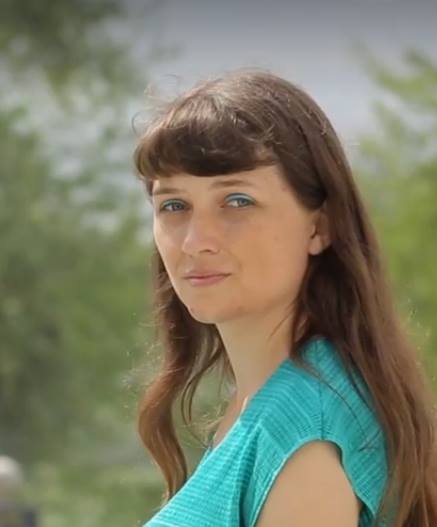
Most patients in psychiatric institutions do not know their rights; no one talks to them about rights.
When she first came to the clinic, Olga did not even know that she could refuse drugs.
In 2011, when she went to the hospital for the third time, she had already undergone training and received the necessary knowledge, but this did not help: she refused drugs, but she was nevertheless forced to take them.
“I asked for a talk with my doctor before taking the medicine. They said that my doctor will come on Monday, and I must take the medicine before he arrives. I refused, but they forced me to take it by force, moreover, in the presence of other patients. They have no sense of shame at all. They spent so many years in this institution that it became the norm,” says Olga.
In reports on the situation in psychiatric institutions, the public defender of Georgia notes that old-generation drugs continue to be used there, not caring about the side effects of them and what additional harm they can cause to a particular patient.
Olga says that the drugs she was given were very difficult to tolerate:
“These drugs have very serious side effects. The same medicines were prescribed to me after I returned home. They affected my liver, stomach, memory, concentration. I had no menstruation for six months. I lived without emotion, I always wanted to sleep. However, the doctors did not offer any alternative.”
For many years now, the Public Defender of Georgia has been criticising the Georgian psychiatric system for ignoring the patient’s opinion and not considering the patient as a person.
For example, while a doctor may talk to a patient with a stomach problem about their illness, the doctor may not even tell a person with mental problems what treatment he or she has prescribed.
Also, nobody cares to make patients’ stay in the psychiatric hospital a little easier.
For example, one of the reports of the Ombudsman, written after visiting the Bediani Psychiatric Clinic, says:
“The patients interviewed said that all the days spent in the clinic were the same, and they could not remember a single different day.”
Olga Kalina recalls the time when she had a feeling of anxiety due to the heavy drugs she was being given and asked the doctor for a sedative. Instead, the doctor increased the dose to make her fall asleep.
“Then I realized that this doctor is completely not concerned about my problems, he does not see me as a person,” Olga says.
The practice of inhumane drug use as one of the main problems of the system has also been included in the report of the Ombudsman. The report confirms that if the patient refuses to take the medicine, they inject them with the drug against their will.
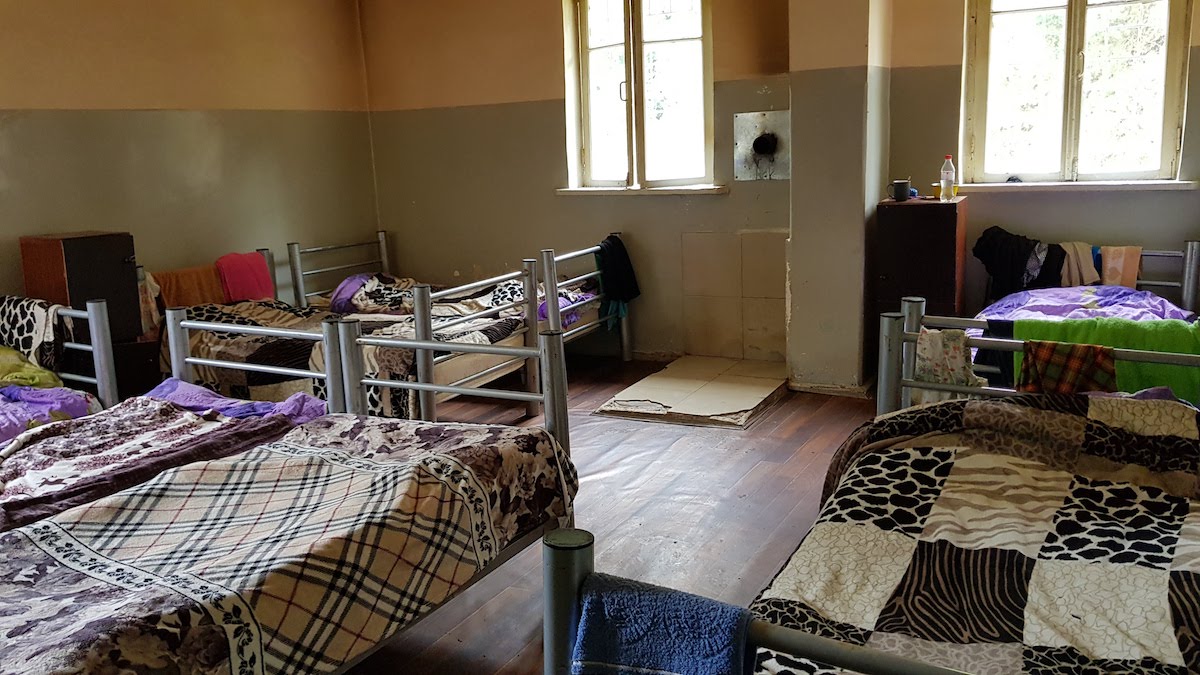
The Georgian legislation does not recognise the use of drugs not for treatment, but for calming a patient down. In some cases, only a physical restriction is permissible and only when the patient can harm themselves or others.
The legislation also allows for involuntary inpatient psychiatric care, but it can only be used when a person cannot make informed decisions and delaying care can endanger them or others. A decision on forced psychiatric care must be made by a court.
In fact, the practice is as follows – patients sign a consent form, not knowing its conditions and their rights. This allows the institution to use whatever desired treatment method they deem fit.
What happens in psychiatric hospitals?
Currently, 11 hospitals provide psychiatric care in Georgia. Seven of them are large psychiatric clinics, and four are multi-purpose hospitals with a mental health department.
The problems in most psychiatric institutions are similar: non-compliance with sanitary standards in buildings and personal hygiene of patients, the practice of physical and chemical restriction of patients, lack of personal space, overloaded wards, lack of access to adequate medical care in case of physical illnesses, as well as long periods of hospitalization, delayed medical care for months, expired drugs, etc.
These problems were indicated by the National Preventive Mechanism at the Office of the Public Defender after visiting various psychiatric clinics.
For example, the report of the public defender only three years ago said that a man, an employee of the administration in the psychiatric clinic Surami, asked female patients to show him their intimate parts of the body, and also asked inappropriate and unethical questions about personal hygiene (2016) [ed. after numerous reports of the Ombudsman at the beginning of 2019, the clinic in Surami was repaired].
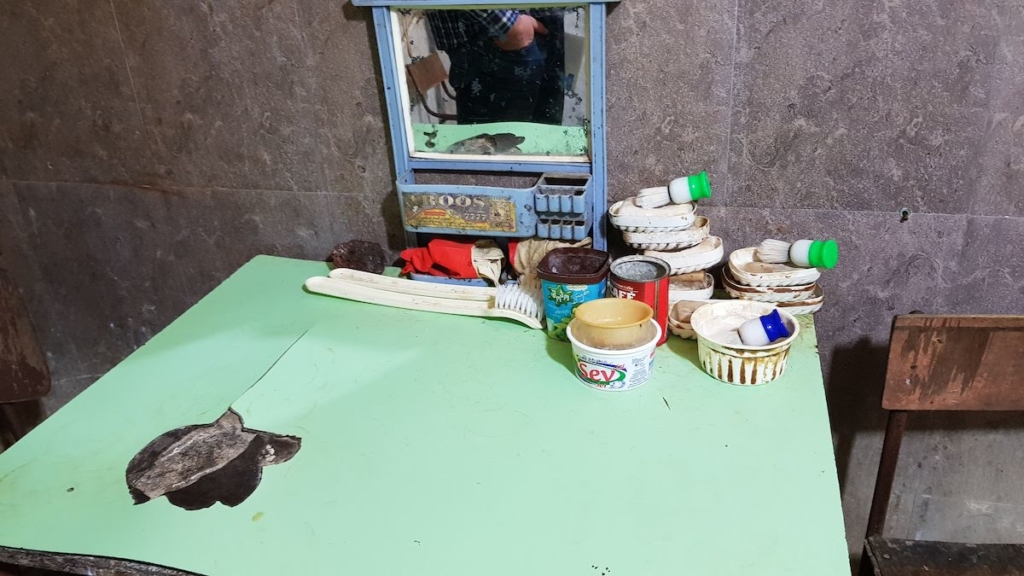
During a visit to the Bediani Psychiatric Clinic, employees of the public defender’s office found that only a few patients had personal hygiene products.
Patient-owned soap and shaving brushes were stored in a shared bath, without any indication of who owned what.
In addition, it was found that all patients shared the same common sponge while bathing. Many of them bathed in a group, all at the same time.
Patient bedding and underwear were also washed together. After washing, many were forced to wear the underwear of other patients.
The public defender says patients in the Bediani institution in winter lack warm clothes and shoes.
“Male and female patients are prohibited from communicating with each other in the yard. As the administration explains, this is done to prevent sexual intercourse. According to patients, if the medical staff notices that patients of the opposite sex are trying to communicate with each other, they shout at them to interrupt the conversation,” the report says.
There are cases when patients are physically abused in the presence of other patients, and sometimes with their help.
Patients are tied up here simply for causing concern about their behaviour.
All this happens in an institution where patients live for many years, and which should be their second home.
The report of the public defender says that in 2018, there were 158 patients in the Bediani Psychiatric Clinic. 32 of them have been living here for 11 years. 64 have been there for more than five years. Most of these people were rejected by their families and society, the state was unable to provide them with appropriate services, and so the psychiatric institution became their home.
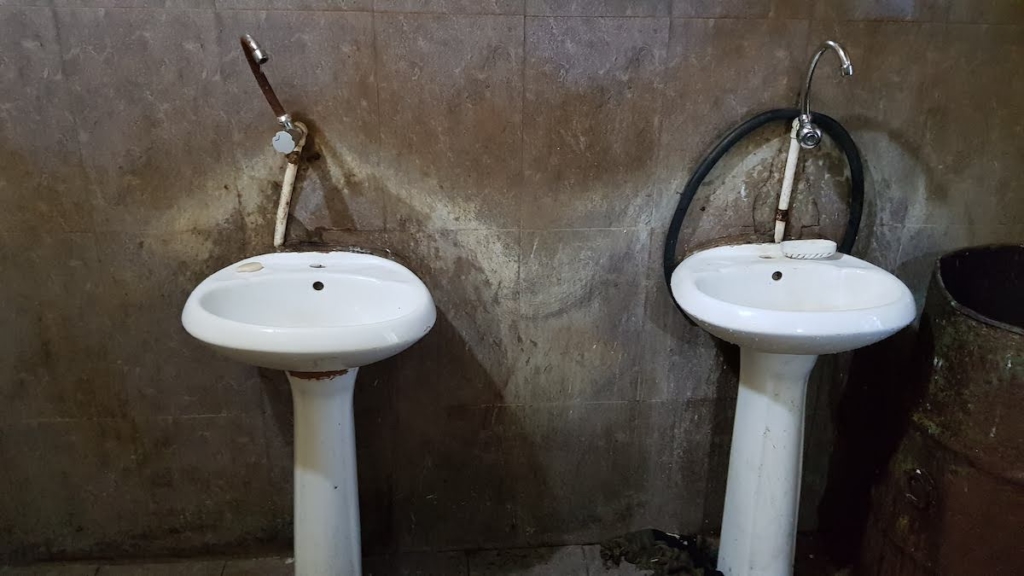
The Ombudsman also notes that Bediani is no exception, and prolonged hospitalisation of patients in other psychiatric clinics is a serious problem.
“This is because there are no programmes that serve patients at home,” the Ombudsman’s report said.
For many, outpatient services are not geographically accessible, so they remain in closed clinics for many years.
Families of many patients are not able to take care of them, and in this case the only way out is to leave them in the clinic.
After many years spent indoors, it is difficult for patients to return to normal:
“Prolonged hospitalization so deprives people of their life skills that their return / reintegration into society is associated with serious obstacles and is a lengthy process, because of which family members refrain from welcoming them back into their families,” the Ombudsman said in a report.
At the end of this critical report, the public defender demanded the immediate closure of the Bediani facility and the placement of patients in better conditions.
The Ministry of Health agreed to this demand, but Bediani employees staged protests for fear of losing their jobs. As a result, only a few patients were transferred to other places, and the relocation process was postponed indefinitely.
Community services and alternative treatments
Patients and specialists have long been demanding a change in the existing situation. They believe that one solution could be the creation of community services. This is done in order to provide the patient with necessary services in an environment convenient for him, for example, at home.
The principle is that even people with mental disorders should live like other people live: in a home environment that does not look like a specialised institution so as not to be separated from more usual environments.
Modern medicine and the world have long abandoned the placement of people with mental problems in large institutions. Practice and research have shown that the process of treatment and recovery is much more effective at home.
The United Nations Convention on the Rights of Persons with Disabilities also mandates that states ensure people equal rights in their choice of place of residence, where and with whom they want to live, and that they not be obligated to live in places specially designated for them.
In Georgia, however, the situation is changing very slowly.
Maia Shishniashvili’s son was two years old when he was diagnosed with severe developmental disorders. Behavioral disorders were later added.
“I thought about what would happen to my son when I was no longer with him. He needed constant support … Then I realized that for me personally, a solution would be a service that would be identical to a family environment or very similar to it,” Maia says, remembering the beginning of these events some 12 years ago.
At the time in the country, there was no such service. Maia decided to create her own and founded in 2011 Kheli Khels [Geo. Hand in hand], an organisation that supports social inclusion.
The organisation already has family housing and the service of personal assistants – specialists who come to the house of people who need their services.
Kheli Khels is a small organization, it has only five residences and a total of 25 people working in them. Two houses are in Tbilisi, three in Gurjaani. As for home assistance, the organization serves a total of 17 people. Most of them are located in Tbilisi, and some in Kakheti.
Maia’s son is now 14 years old and uses the services at home provided by his mother’s organization.
The organization also encourages others to develop these types of public services by providing training to those who wish to learn the specifics of this work.
The participation of the state in the work of this organization is only partial – the state finances only housing, while considering each case individually. Other services are paid.
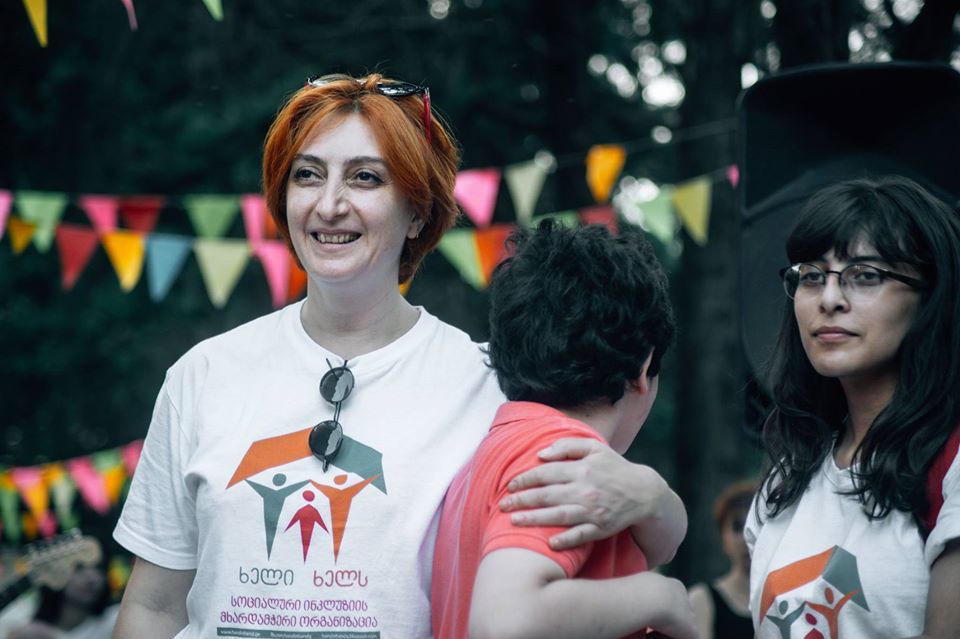
Another home organization, the Evidence Based Practice Center, also offers home treatment services for patients with severe mental disorders.
Assertive treatment is when the patient stays at home, does not break away from his usual environment, continues his normal life and has the opportunity to communicate with others openly and on an equal footing.
The main goal of this method is to help people with mental disorders get into closed institutions as rarely as possible.
“As it turns out, when a person spends more time at home, with his family, his chances of continuing to study, to be able to work, to return to his social connections are much higher than after being in closed institutions,” said the head of the center, Giorgi Geleishvili.
In Georgia, the scale of this programme is still very modest.
Assertive community treatment services at this stage are available only in Tbilisi. And only for people of a certain disability group. The criteria for the programme are three or more hospital admissions, or five months or longer hospital stays.
At this stage, one hundred people are undergoing assertive community treatment, and the Tbilisi City Hall makes a small contribution to the programme through co-financing.
Assertive treatment includes a visit to the patient at least six times a month. At the same time, services and telephone consultations are available 24 hours a day, if necessary.
About the same service on a small scale is available in the regions. This service is funded by the state. This is a mobile group of three people, which, if necessary, comes to the patient and provides on-site services. Now 26 mobile teams are working across the country.
The Ministry of Health says the budget for psychiatric programmes has increased, and it is planned to add more mobile groups.
Experts believe that the priority for achieving high-quality psychiatric care should be family-type services, not closed institutions.
“Patients need a home, not a clinic. Whenever a person can be treated at home, he must stay at home. Community service is not available to many. But we have large clinics where these people are not taken care of and where their condition does not improve, but rather worsens. Finding them indoors is simply a crime. They are deprived of almost all rights – the right to life, the right to live with whoever they want, the right to work, study and education. The state cannot offer them an alternative, a service based on the exercise of their rights,” says Maia Shishniashvili, head of Kheli Khels.
What’s changing in 2020?
Eka Adamia, head of the health policy department at the Ministry of Health, says the state recognizes the importance of community service, and the Mental Health Strategy document says that community and hospital services should be equal:
“We are moving in this direction step by step, everything will not work right away. The first confirmation of this is that we support the mental health department, which is open in a multi-purpose institution, and not in large specialized institutions,” says Adamia.
The draft budget for 2020 for psychiatric health provides 27.5 million lari [about $9.5 million], which is 3.5 million [about $1.2 million] more than last year.
Despite the increase in funding, experts believe that this is not enough to change the terrible situation in this area.
Experts say that the state allocates money annually, but the key question is how efficiently they are spent and whether the system helps patients:
“Over the past few years, the budget has been increasing, new services are appearing, but there is no mechanism that could guarantee that this extra money will be sent to the patient and spent properly. We also don’t know if there is enough money, whether the service is provided properly or not,” said associate professor Giorgi Geleishvili, associate professor of psychiatry at Tbilisi Medical University, who considers the lack of a monitoring mechanism to be one of the main mental health problems.
Maia Shishniashvili also notes that the Ministry of Health has not yet adopted the standards that services in this area must meet.
“That is, our state does not distinguish which organization or institution provides quality service and which does not. There is no quality control because we do not have standards,” she says.
Giorgi Geleishvili considers the decision of the Ministry of Health to separate the areas of psychiatry and narcology a mistake.
This solution created many misunderstandings and problems in the system.
For example, if a patient is a consumer of psychoactive substances and at the same time suffers from a mental or behavioral disorder, he will not be able to receive treatment from a licensed psychiatrist. According to the new rule, only a doctor with a license of a narcologist should treat him. At the same time, narcologists are forbidden to accept patients with mental disorders.
“What should such a patient do? In such cases, there are two options – either the patient remains ‘in the air’, or the institution is forced to somehow make an artificial diagnosis. If an institution violates the law, it will be held accountable. If it doesn’t violate it, it will not accept the patient, but something can happen to him, and the institution will be held accountable again,” says Geleishvili.
That the decision needs to be reconsidered was well illustrated by a tragedy earlier this year in Rustavi – when a person with serious mental problems, who also used psychoactive substances, killed his 13-year-old nephew. The day before the tragedy, family members brought him to several clinics, as his condition worsened. However, neither drug treatment centers nor psychiatric clinics in Rustavi and Tbilisi accepted him.
“The neighbors want us to have a separate entrance”
When it comes to people with mental health problems, the stereotypes that are prevalent in society remain a constant problem, further complicating the lives of these people.
Giorgi Geleishvili says his organization rented an office in a block on the Nutsubidze Plateau in Tbilisi. He said that from time to time his neighbors protested against their presence there.
“They wanted us not to be there, for us to have a separate entrance, etc.,” says Geleishvili.
He sees a solution in education.
Maia Shishniashvili also speaks about the stereotypical attitude of society. According to her, due to lack of information, people with mental disorders are considered dangerous; a stereotype to which the media also contributes.
“Very often, when a person commits a crime, he immediately suspects that he has a mental disorder. The identification of violence and a rapist with a mental disorder demonizes people who are often not rapists, but victims,” Shishniashvili said.
Olga Kalina, who lives and works with a diagnosis of paranoid schizophrenia, also speaks of stereotypical terminology. She says that often citizens, including politicians on television, use words that express various mental disorders to offend someone.
“They don’t even think that this is a very serious condition of a person, a problem, and there is nothing funny or shameful in that. The public believes that if you have a specific diagnosis, you are ‘abnormal.’ In fact, the crisis can be quite short, and a person can continue to live as usual at other times,” says Olga.


















